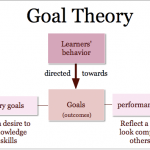The “why” behind self-improvement. A Self-Determination Theory approach
All throughout their lives, people get engaged in self-improvement activities, be it in a structured or non-structured way. From simply reading a new book, taking on a training course or establishing personal goals and initiatives, all these activities need specific drivers. So what makes us establish goals and stick with them? What pushes us into becoming better? What drives us to act? What are the factors that enhance our motivation and, ultimately, our well-being?
A broad framework which answers most of these questions is the Self-Determination Theory (SDT). As stated by Richard Ryan and Edward Deci in their study, “Self-Determination Theory and the Facilitation of Intrinsic Motivation, Social Development, and Well-Being,” SDT is an approach to human motivation and personality, which uses empirical methods to highlight the importance of humans’ evolved inner resources for personality development and behavioral self-regulation.
Personal identity, needs and goals
As the researcher Jennifer G. La Guardia states, the Self-Determination Theory even provides an understanding of motivational processes that influence identity formation and maintenance, as well as the identity related concepts of exploration and commitment.
Also, in Ryan and Deci’s opinion, the concept of “needs” is strongly related to growth and well-being and it has a huge impact on the entire activity of setting and pursuing goals. The researchers differentiate between the content of goals (outcomes) and the regulatory processes through which goals are pursued. As mentioned, Ryan and Deci bring into attention the concept of needs, which was once widely employed in the study of motivation. In this context, they define the term as “psychological nutriments that are essential for ongoing psychological growth, integrity, and well-being”.
Therefore, as the two researchers explain, the degree to which people satisfy their basic psychological needs will strongly influence the goal pursuit and, ultimately, their attainment.
According to the Self-Determination Theory, there are three main needs that are essential for psychological development – including identity development and goal pursuit, namely:
- Autonomy: the actions that are self-initiated and regulated;
- Competence: the experience of master and challenge (curiosity, exploration, stretching one’s capacities)
- Relatedness: the feeling of belonging.
These three needs explain, in Ryan and Deci’s opinion, the human predilection to get engaged in growth-related activities.
Intrinsic and extrinsic motivation in self-improvement
The concept of motivation has always been a perennial issue in psychology. From a Self-Determinatipn Theory point of view, it is Ryan and Deci again who discern between two main types of motivation, based on the reasons that encourage action, namely intrinsic and extrinsic motivation. According to the two researchers, the first one refers to undertaking an action because it is interesting and enjoyable, while the latter one means doing something because it leads to an outcome.
If a person is told by the doctor to lose weight, we are talking about extrinsic motivation. If the person takes action to lose weight because he or she believes it would bring health benefits, this again is the case of extrinsic motivation, as the person does so for the instrumental value of the action, not for pleasure. The only case when we can confirm the driver was intrinsic motivation is when one changes diet and physical activity related habits out of sheer pleasure.
A specific example comes from the usage of financial incentives in healthy lifestyle interventions. Researchers Arlen C. Moller, Joanna Buscemi, H. Gene McFadden, Donald Hedeker and Bonnie Spring analyzed data from the Make Better Choices trial which tested strategies for improving nutrition and healthcare risk behaviors. The results were influenced by the size of each incentive, and the researchers concluded that high financial incentives undermined participant’s potential for growing to enjoy healthy behaviors.
So, taking all into consideration, why do people want to improve themselves and what makes them work to achieve their self-improvement goals? Intrinsic motivation seems to be an important driver when it comes to changes in lifestyle and self-improvement, more efficient than extrinsic motivation and, especially, financial incentives. Once you internalize the pleasure and utility of improving your personal processes and performance, your psychological needs will drive the establishment of specific goals and initiatives and, ultimately, will enable their attainment.
References:
- Ryan, R., Deci, E. (2000), Self-Determination Theory and the Facilitation of Intrinsic Motivation, Social Development, and Well-Being, The American Psychologist
- La Guardia, J. (2009), Developing Who I Am: A Self-Determination Theory Approach to the Establishment of Healthy Identities, Educational Psychologist
- Moller A.C., Buscemi, J., McFadden H.G., Hedeker D., Spring B. (2012), Financial motivation undermines potential enjoyment in an intensive diet and activity intervention, Journal of Behavioral Medicine
Image Source:

Tags: Motivation, Personal performance





